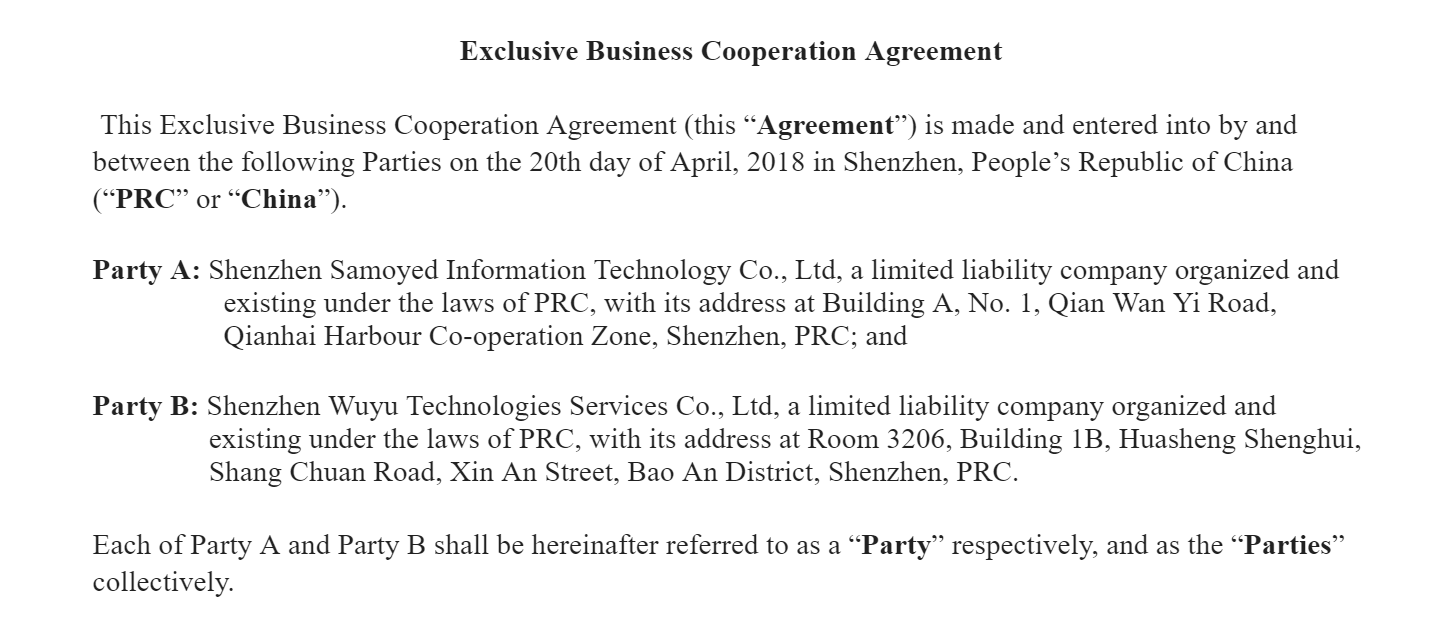Behold the following introductory clause:
AMENDMENT, dated as of October 10, 2018, to the ISDA Master Agreement , dated as of July 12, 2017 (as amended, supplemented or otherwise modified from time to time, the “Agreement”), between JPMORGAN CHASE BANK, N.A. (“Party A”) and CAMBRIDGE MASTER FUND L.P. (“Party B”).
Note the defined terms Party A and Party B. They’re a terrible choice for defined terms for party names. Unlike defined terms based on party names (in this case, JPMorgan and Cambridge) or defined terms that are common nouns (such as the Bank and the Investor), Party A and Party B give the reader no clue as to the role each party plays in the transaction. The only advantage over the archaic and dreadful party of the first part and party of the second party is that Party A and Party B are shorter. (By the way, note that this example relates to an ISDA master agreement. I believe that ISDA form documents use Party A and Party B. Boo.)
There’s only one context in which Party A and Party B might have a role to play. Here’s MSCD 2.118:
A contract might provide for a mechanism in which either party plays a given role, with the other party playing another role. For example, either of two shareholders might have an option to buy the other out. In referring to each party when describing that mechanism, you must use a generic label instead of a party-name defined term.
MSCD goes on to provide further guidance.
But what’s interesting about Party A and Party B is that the overwhelming majority of contracts that use them as party-name defined terms are Chinese contracts. Here’s an example:
I’m not surprised. After all, I wrote this post because a participant at last week’s “Drafting Clearer Contracts” seminar in Hong Kong asked me about use of Party A and Party B.
Chinese drafters, you can do better than Party A and Party B.


This is an interesting bit of East Asian translationese. It’s common practice in Korean legal writing (and I believe also in Chinese and Japanese legal writing) to use the Heavenly Stems (particularly the first 2-3, namely 甲 (갑), 乙 (을), and 丙 (병)) to refer to different parties to a contract or court case. There are some historical/cultural factors underlying this practice which are beyond my ability to untangle; suffice it to say that some things that Western attorneys might take for granted (like referring to parties by their actual names) have met with rather limited acceptance in East Asia.
Legal translations have to hew closely to the source, but English has no equivalent to the Heavenly Stems, so there isn’t usually much to be done except call them “Party A” and “Party B” (although I suppose one could revert to the original meanings and call them “Shell” and “Fishguts”).
But whether or not this usage works adequately in a source language where this terminology is expected, for it to turn up in an English document that is meant to stand on its own suggests a serious failure to localize (or de-localize?) the text rather than simply translating it.
Thanks for this!
Just saying, there is a reason why the Chinese use Party A and Party B in contracts. There are no uppercase, lowercase, definite, or indefinite articles in Chinese. Take the Bank and the Investor you gave in the blog for example, it might be a problem if there are several banks and investors in the contract and they somehow use the Bank and the Investor as defined terms. That might confuse everyday Chinese readers. However, Parties A and B won’t be an issue in that case, since they won’t be mixed with other terms.